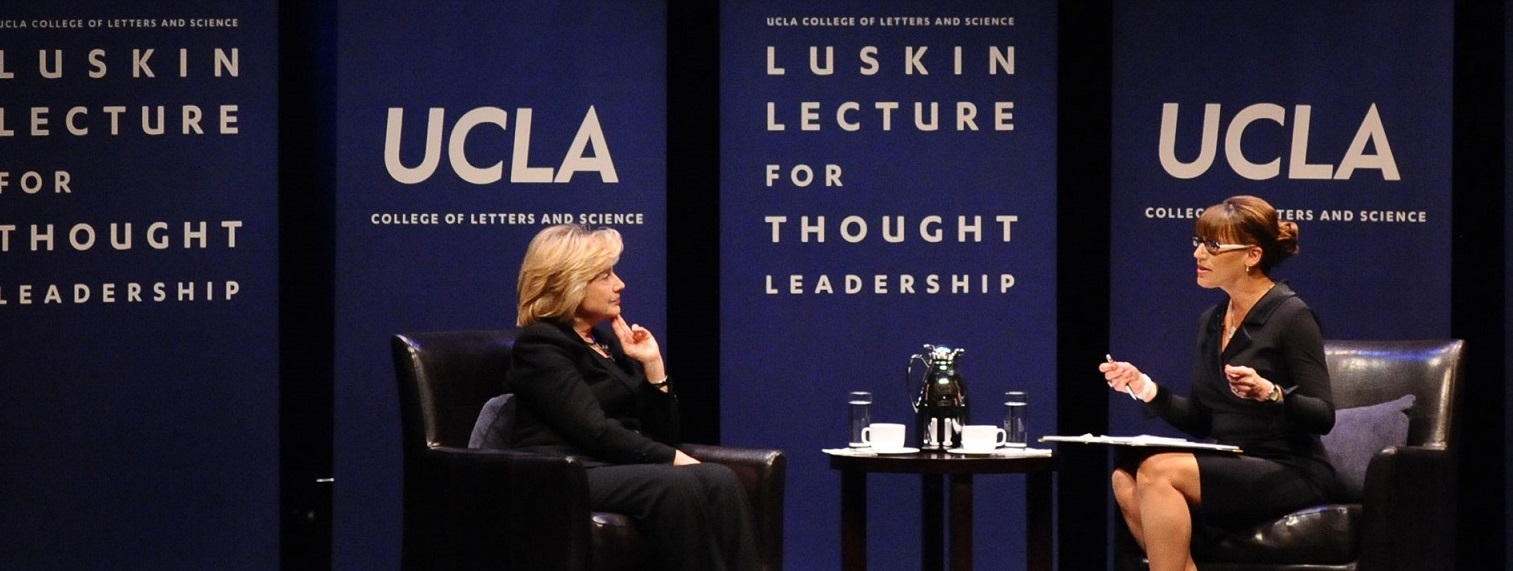If you’ve ever been a newlywed, you know the tingly euphoria of saying “I do” and starting a life with your spouse. This is romantic love, Western style. We often chalk it up to “chemistry,” an ill-defined connection of hearts and minds. Groundbreaking research at UC Santa Barbara finds we were closer than we knew.
如果你曾经是一个新婚夫妇,你就会知道在说“我愿意”时,要和你的配偶开始新生活时那种兴奋的喜悦。这就是,西式的浪漫爱情。我们经常把它归结为“化学反应”,一种心灵和思想之间的模糊联系。加州大学圣塔芭芭拉分校(UC Santa Barbara)突破性研究发现,我们的关系比我们想象的更亲近。

For the first time, researchers have explored the neural and genetic connections to romantic love in newlyweds. By using functional magnetic resonance imaging (fMRI) and genetic analysis of 19 first-time newlyweds, Bianca Acevedo and her collaborators showed that “romantic love maintenance is part of a broad mammalian strategy for reproduction and long-term attachment that is influenced by basic reward circuitry, complex cognitive processes and genetic factors.”
研究人员首次探索了新婚夫妇浪漫爱情与神经和基因之间的联系。Bianca Acevedo和她的同事对19对新婚夫妇进行了功能性磁共振成像(fMRI)和基因分析,发现“维持浪漫的爱情是哺乳动物广泛繁殖和长期依恋策略的一部分,受基本奖赏回路、复杂认知过程和遗传因素影响的长期依恋。”
In short, we’re hard-wired to sustain romantic love to maintain a successful marriage and the family unit, thanks to neurotransmitters like dopamine and a suite of genetic mutations.
简而言之,多亏了像多巴胺这样的神经递质和一系列基因突变,我们天生就会通过维持浪漫爱情来维持成功的家庭和婚姻。
“This is the first study to examine the neural and genetic correlates of romantic love maintenance,” said Acevedo, a research scientist at UC Santa Barbara’s Department of Psychological & Brain Sciences and the lead author of “After the Honeymoon: Neural and Genetic Correlates of Romantic Love in Newlywed Marriages” in the journal Frontiers in Psychology.
“这是第一次对维持浪漫爱情的神经和遗传关系进行研究,”Acevedo说,她是加州大学圣塔芭芭拉分校心理与脑科学部门的研究科学家,并作为主要作者在《心理学前沿》(Frontiers in Psychology)杂志上发表文章:“蜜月之后:新婚夫妻的浪漫爱情与神经和基因的关系”。
“The study showed that the maintenance of love is not only associated with activation of subcortical regions but also higher order centers of the brain,” she said. “Also, for the first time we provide evidence that the propensity to sustain romantic love may be affected by genetic variability. Specifically, the genes we examined are associated with pair-bonding behaviors including fidelity and sexual behaviors; and social behaviors such as trust, eye-gazing and attachment.”
她说:“研究表明,爱情的维持不仅与皮层下区域的激活有关,还与大脑高级中枢的激活有关。同时,我们第一次提供证据证明维持浪漫爱情的倾向可能受到基因变异的影响。具体来说,我们检查的基因与配偶结合行为,包括忠诚和性行为有关;以及信任、凝视和依恋等社会行为。”
To test their hypothesis that romantic love is a developed form of the mammalian drive to find and keep mates, the researchers performed fMRI scans of the brains of the members of the study group — 11 women and eight men. Participants were shown alternating images of their partners and a neutral acquaintance they knew well.
为了验证他们的假设,即浪漫的爱情是哺乳动物寻找和留住配偶的一种发展形式,研究人员对研究小组成员——11名女性和8名男性——的大脑进行了fMRI扫描。参与者轮流观看他们的伴侣和一个他们熟人的照片。
At the start of each session, the subjects were instructed to recall non-sexual events with the person whose face was displayed. While still in the scanner, participants rated their moods to verify that the evoked emotions corresponded to the target image.
在每一阶段开始时,研究对象被要求回忆与展示图像的人发生的非性行为。当参与者还在被扫描时,他们对自己的情绪进行评分,以验证唤起的情绪是否与目标图像相符。
The participants were tested around the time of marriage and a year later.
参与者分别在结婚时和结婚后一年接受测试。
In addition, they provided saliva samples for testing of vasopressin, oxytocin and dopamine genes implicated in pair bonding in non-human mammals, such as voles.
此外,他们还提供了唾液样本,用于测试非人类哺乳动物(如田鼠)中与配偶结合有关的加压素、催产素和多巴胺基因。
“Our findings showed robust evidence of the dopamine reward system’s involvement in romantic love,” Acevedo said. “This system is interesting because it is implicated in motivation, energy, working for rewards, and is associated with corresponding emotions such as excitement, euphoria and energy, as well as frustration if the drive is thwarted.”
Acevedo说:“我们的发现显示了多巴胺奖励系统参与浪漫爱情的有力证据。这个系统很有趣,因为它与动机、精力、工作回报有关,还与相应的情绪有关,比如兴奋、欣快和精力充沛,以及驱动力受挫时的沮丧。”
Acevedo’s current research builds on her work on empathy and altruism and its correlates in the brain.
Acevedo目前的研究是建立在她对移情和利他主义及其在大脑中关联的研究之上的。
“Empathy has its roots in social bonding,” she explained. “In our previous work we showed that although humans express sentiments such as empathy and altruism towards strangers and non-close others, brain responses to partners are stronger. Thus, there is specificity. Romantic love is somewhat different in that it may or may not include empathy or altruism, but in healthy partnerships it does.”
“移情根植于社会纽带,”她解释道。“在我们之前的研究中,我们发现尽管人类会对陌生人和不亲近的人表达情感,比如移情和利他主义,但大脑对伴侣的反应更强烈。”因此,浪漫的爱情有特殊性,这点有些不同,因为它可能包含也可能不包含移情或利他主义,但健康的伴侣关系包含。”

For some romantics, it might seem a tad clinical to chalk up our feelings of love and commitment to biochemistry. Acevedo, however, said gene mutations and brain activity are only components of romance and belonging.
对于一些浪漫主义者来说,把我们对爱的感觉和承诺归因于生物化学领域似乎有点临床化。然而Acevedo说,基因突变和大脑活动只是浪漫和归属感的组成部分。
“Humans are creative and clever,” she said. “Romantic love inspires people to know how to put a smile on their partner’s face. By making our partners happy we not only keep our relationships stable, but we also derive joy from such events.
“人类很有创造力,也很聪明,”她说。“浪漫的爱情会让人们学会如何让对方开心。”通过让我们的伴侣微笑,我们不仅能保持我们的关系稳定,还能从这些事情中获得快乐。
“In the brain,” Acevedo continued, “this is shown as increased reward activation when people are shown images of a partner smiling and they are told that something wonderful has happened to the partner. People know this intuitively. They know that romance goes a long way in finding and keeping a preferred mate. That’s why there is multibillion-dollar industry built on it — from dating sites, to lingerie to Hallmark cards, chocolate and diamond rings.”
“在大脑中,”Acevedo继续说,“当人们看到伴侣微笑的图像,并被告知伴侣身上发生了美妙的事情时,大脑的奖励激活就会增强。人们凭直觉就知道这一点。他们知道,浪漫在寻找和保持一个首选伴侣方面有很长的路要走。这就是为什么有数十亿美元的产业建立在它的基础上——从约会网站,到内衣,到贺曼贺卡,巧克力和钻石戒指。”
And besides, our chemical impulses don’t buy flowers or cook dinner.
此外,我们的化学冲动不会买花或做饭。
“Love is basic but complex,” Acevedo said. “We are wired to love, but it takes work to find and keep love alive."
Acevedo说:“爱是基本的,但也是复杂的。“我们被赋予了爱,但我们需要努力去寻找并保持爱的活力。”




